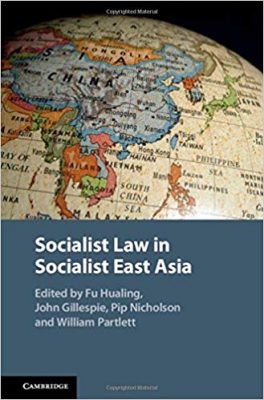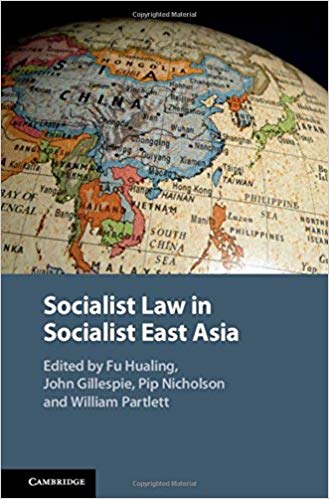 Editors: Fu Hualing, John Gillespie, Pip Nicholson, and William Partlett
Editors: Fu Hualing, John Gillespie, Pip Nicholson, and William Partlett
Publisher: Cambridge University Press – 448 pages
Book Review by: Sonu Chandiram
Capitalism and socialism are two basic and major types of economies prevailing in the world today. The differences between these revolve mainly around how big or small a role the government plays. Capitalism provides economic freedom to individuals, as well as consumer choice and economic growth, whereas in socialism the state organizes the economy and society so that there are no capitalists or owners of a property or a business, and the occupants of the property or the workers in a business are managed by the government.
Currently, there are probably no countries in the world that are purely socialist in nature. Those that were purely socialist in the past such as China and the Soviet Union have some elements of capitalism and socialism ion their economies with varying degrees of control or influence by its governments. China, Russia, and Vietnam come to mind immediately.
This book takes a comparative look between China and Vietnam in terms of the influence socialist law on enterprises.
Seventeen specialists in law including the editors named above, from six countries – Australia, China, Hong Kong, Singapore, the United States, and Vietnam – authored the 15 chapters of this book that we list below, to give you a perspective of what issues and matters are covered and discussed in this book in a comparative analysis of socialist laws and institutional designs that have been changing in China since 1978 and in Vietnam since 1986:
- Part I. Socialism and Legality
- Socialist Law in Socialist East Asia
- What is Not ‘Socialist’ About Socialist Law
- Part II. Socialism and Legacies
- The Historical Roots of Socialist Law
- Socialist Rule of Law with Chinese Characteristics: A New Genealogy
- The Soviet Legacy and its Impact on Contemporary Vietnam
- Part III. Constitutions
- Diverging Trends in the Socialist Constitutionalism of the People’s republic of China and the Socialist Republic of Vietnam
- Constitutional Dualism: Socialism and Constitutionalism in Contemporary Vietnam
- Part IV. Justice and Democratic Centralism
- Democratic Centralism and Administration in China
- Roots and Routes: Adapting the Soviet-Inspired Vietnamese Court and Procuracy System
- Part V. Labour
- What is Socialist about Labour Law in China?
- Strike Settlement in Transitional Vietnam and the Persistence of Socialist and Marxist-Leninist Influences
- Part VI. Regulatory Approaches
- Is Vietnam Transitioning Out of Socialism or Transforming Socialism? Searching for Answers in Commercial Regulation
- The Influence of Socialist Principles in the Legal Regulation of Markets in China: The Anti-Monopoly Law
- Part VII. Land
- The Evolution of the Property System in China: Between the Socialist Heritage and the Liberal Market
- From the Revolution to Evolution: The Changing Meanings of Socialist Land in Vietnam
This is an excellent study on the changing and transforming influence of socialist law on the economy in general and businesses in particular in two formerly purely socialist countries – China and Vietnam. It is a view that is unique and rare, in the sense that there few if any books out there with comparative analyses of political economies wherein legal systems are changing, evolving, and transforming.
Editors:
Fu Hualing is Professor of Law and Associate Dean at the University of Hong Kong
John Gillespie is Professor of Law in Monash Business School at Monash University, Australia
Pip Nicholson is Professor of Law and Dean at Melbourne University in Australia.
William Partlett is Associate Professor at Melbourne Law School in Australia.







